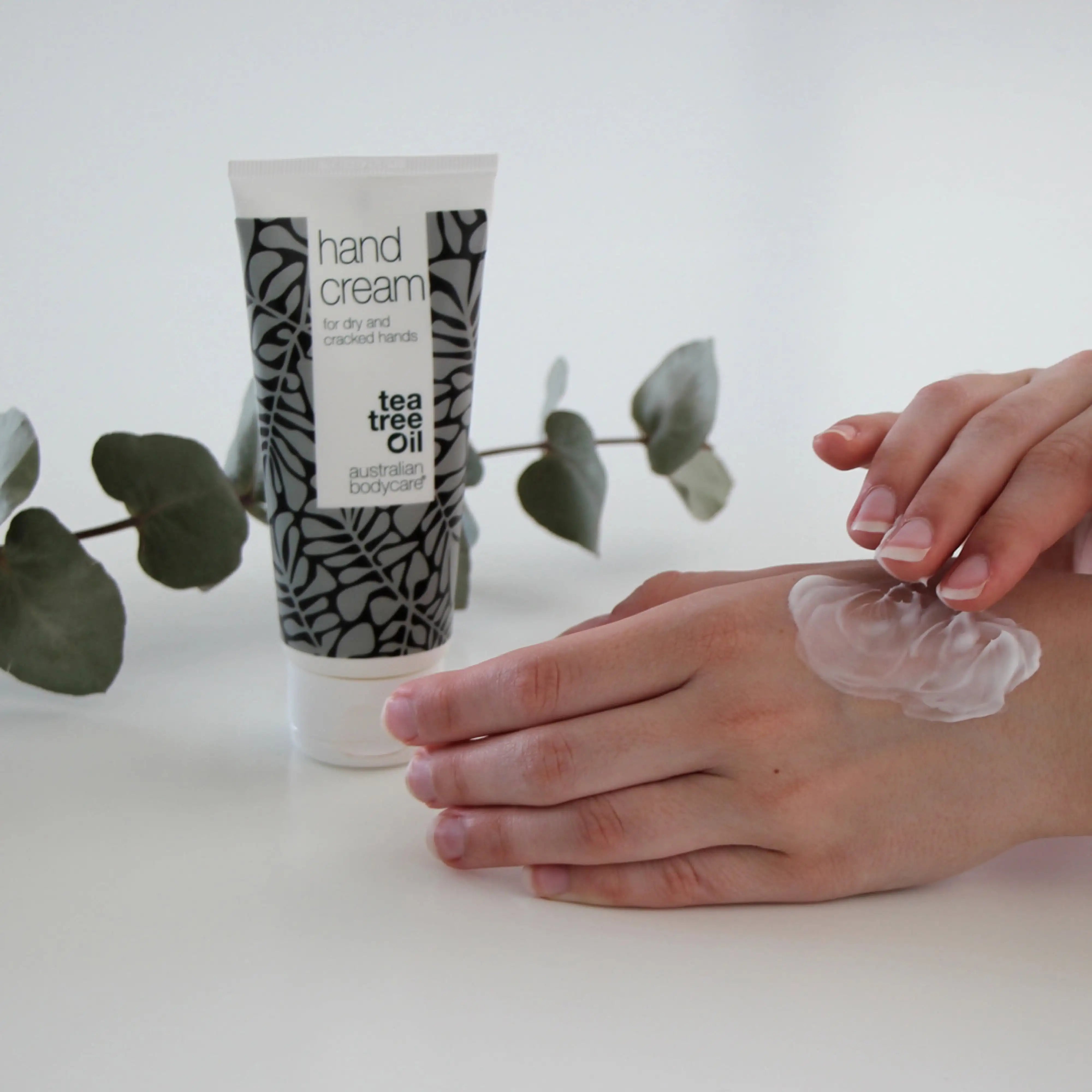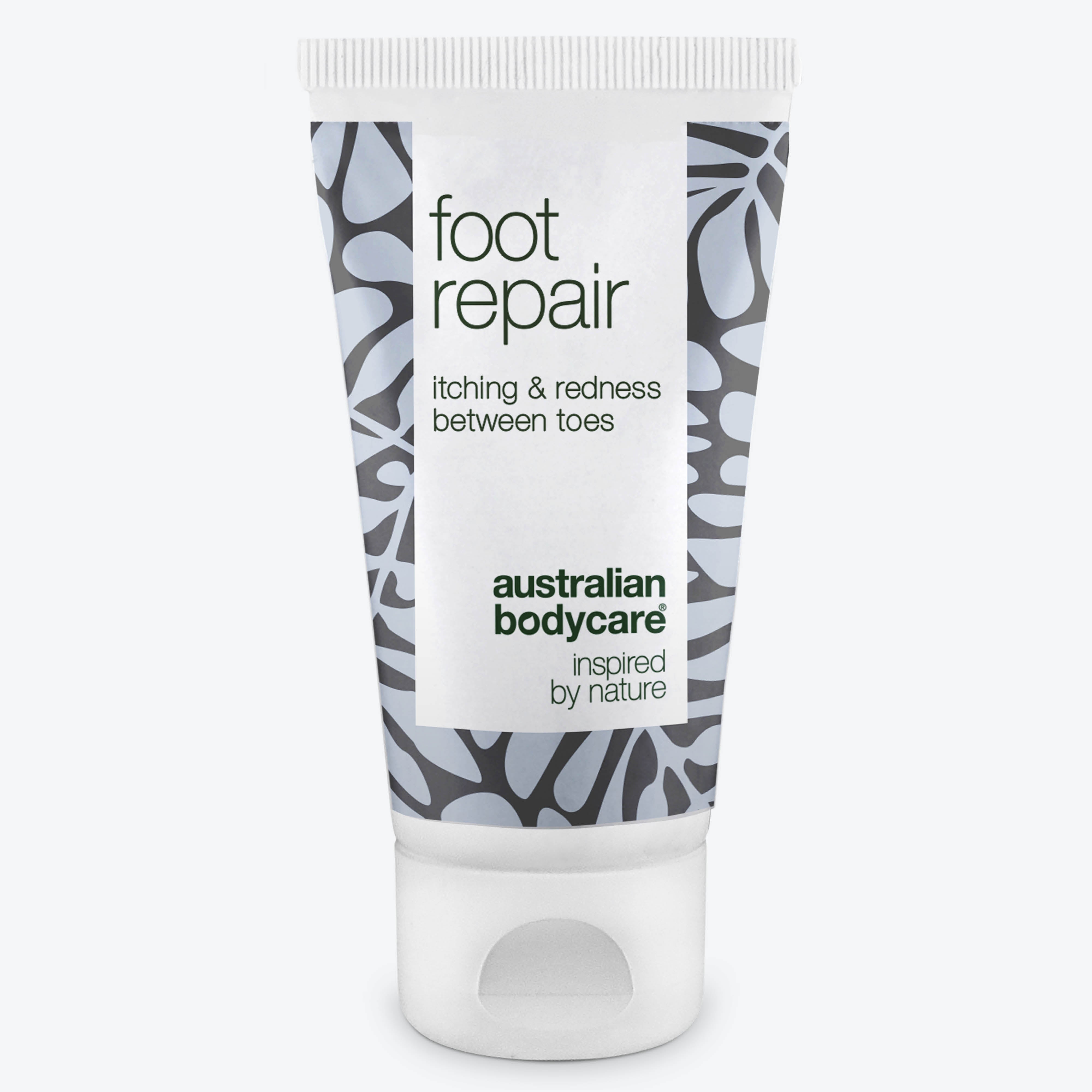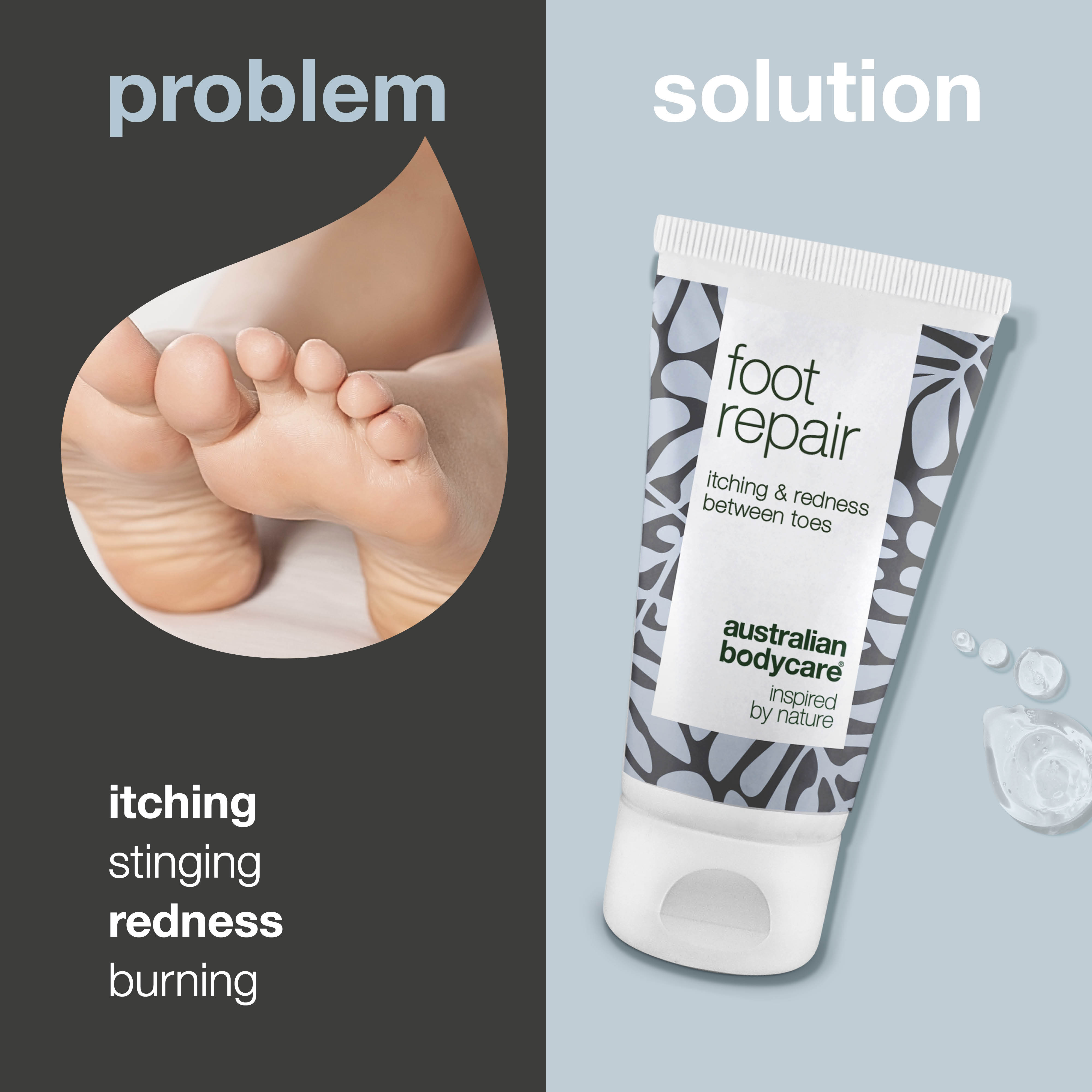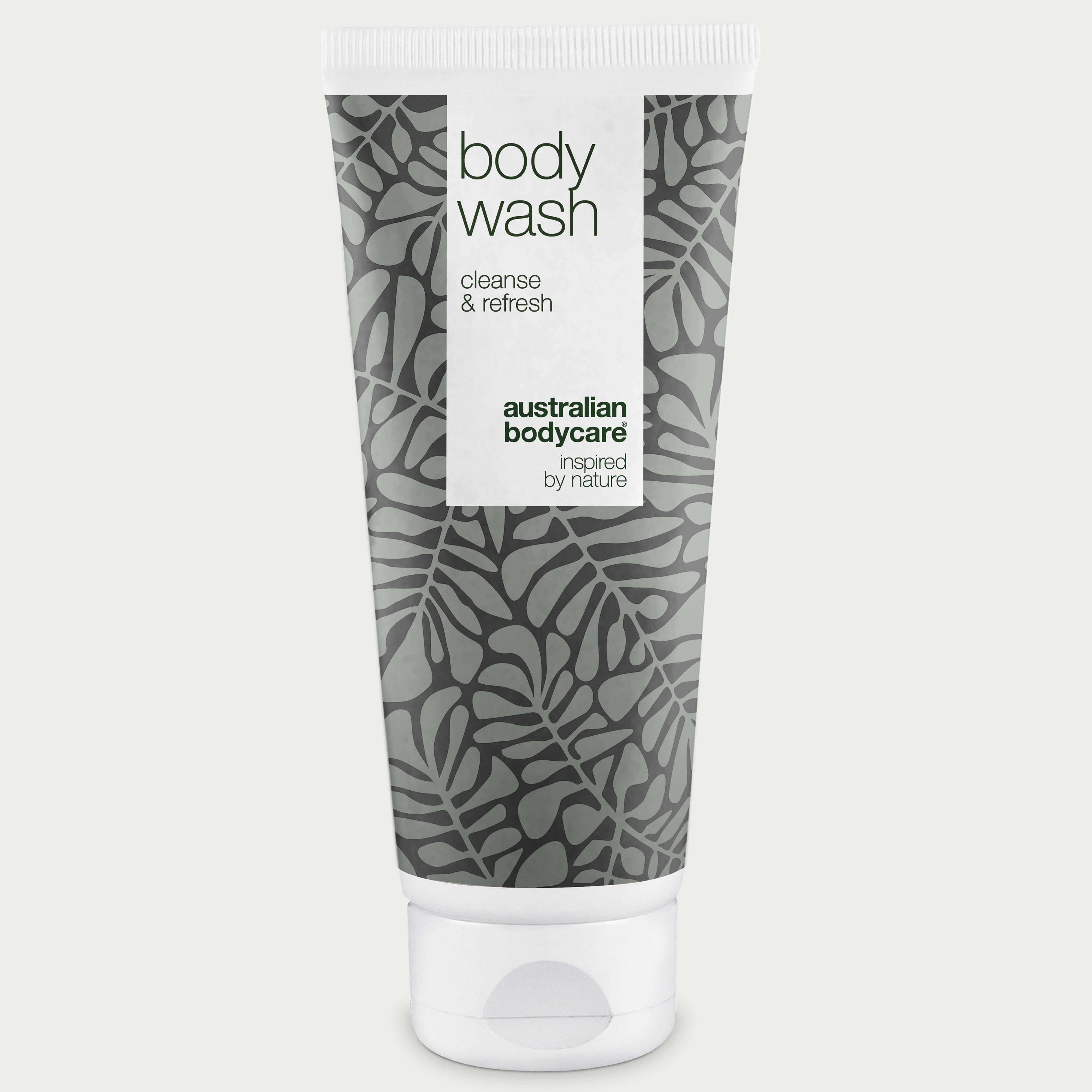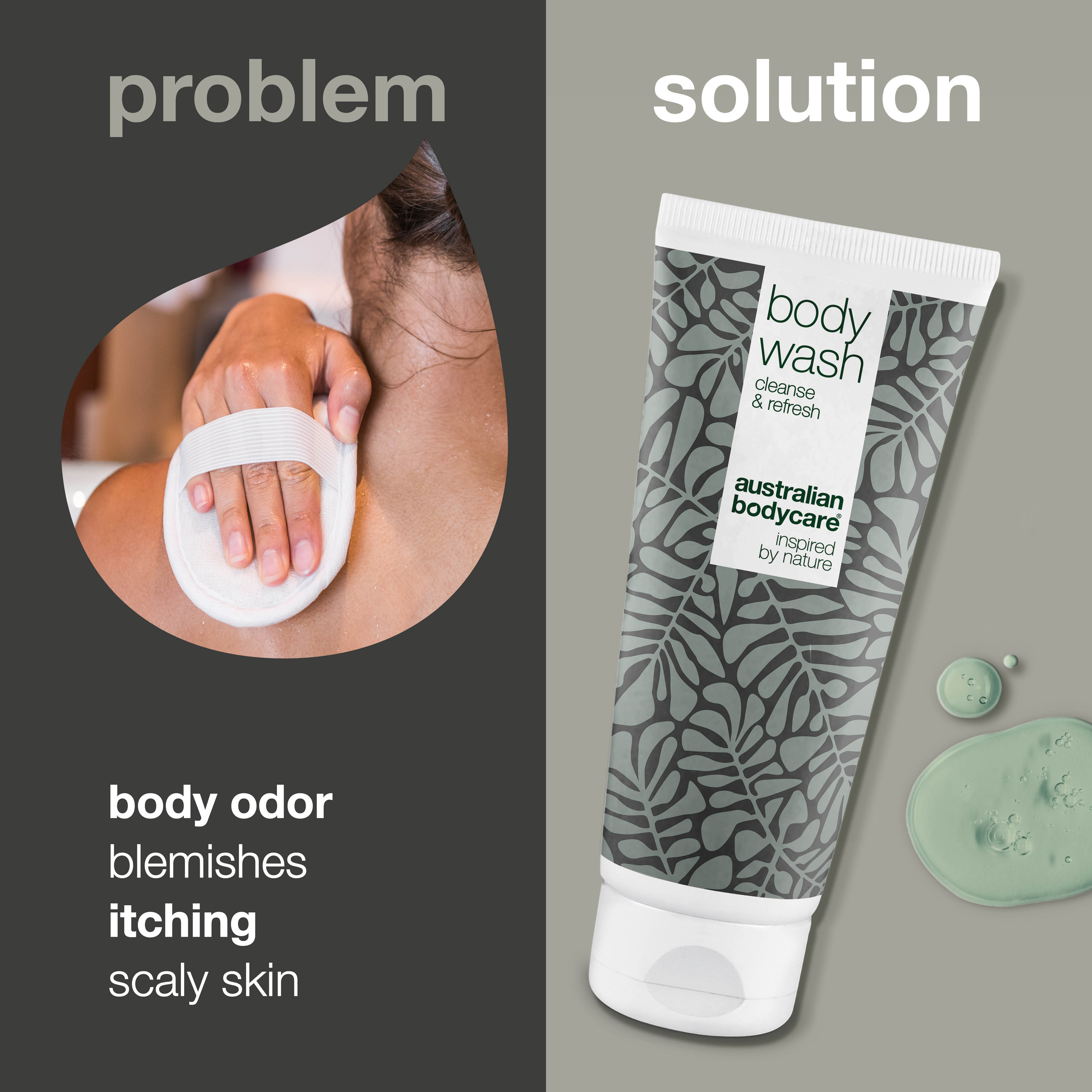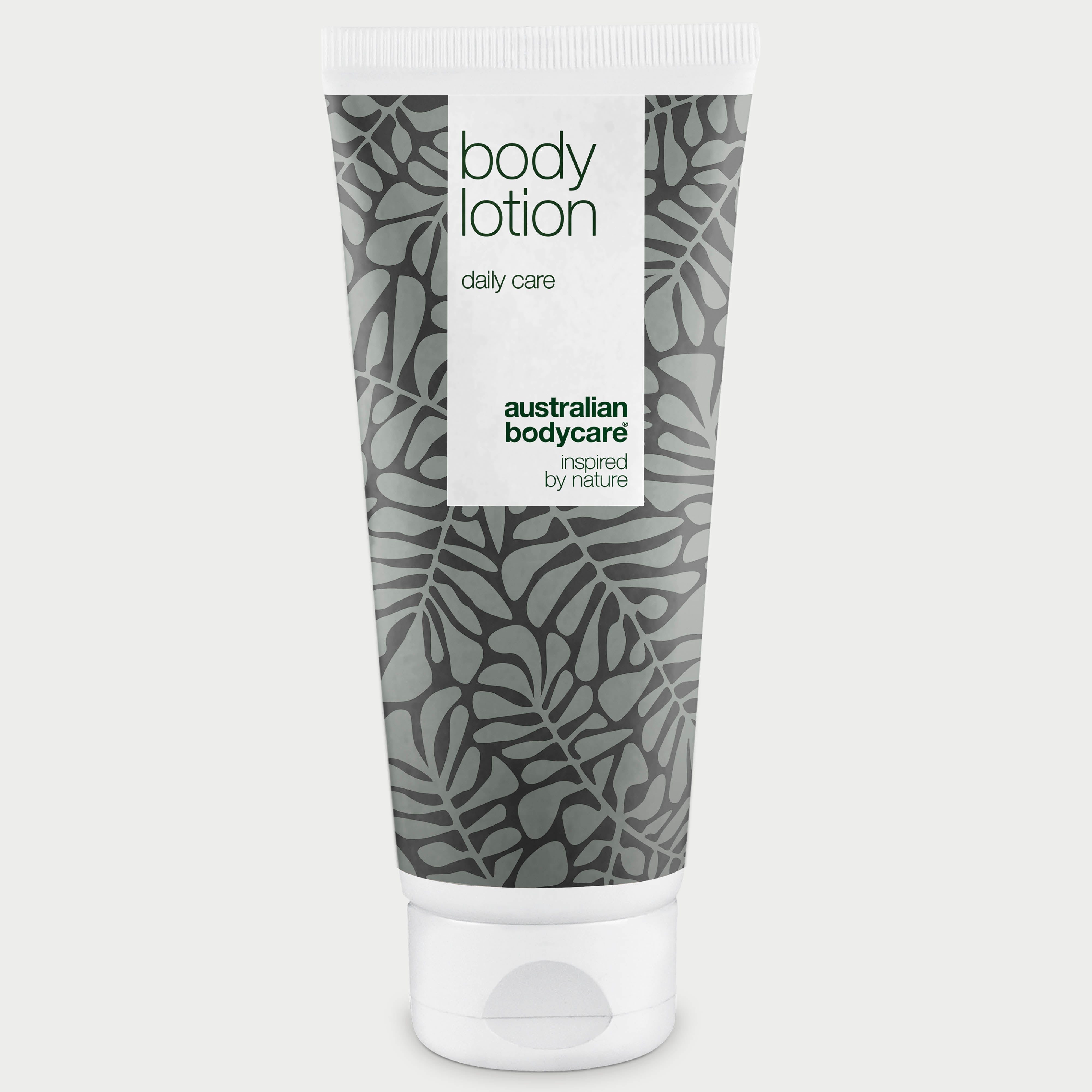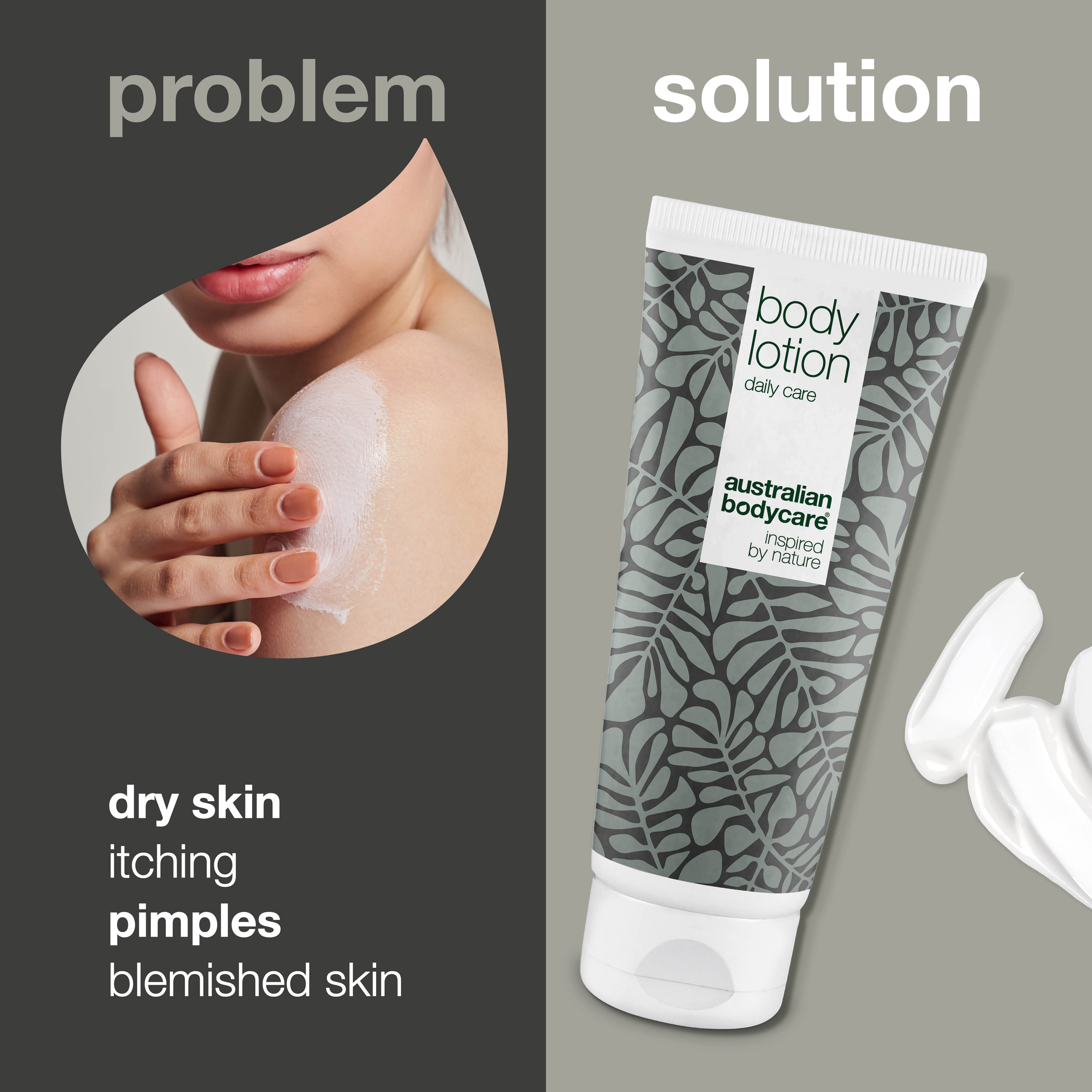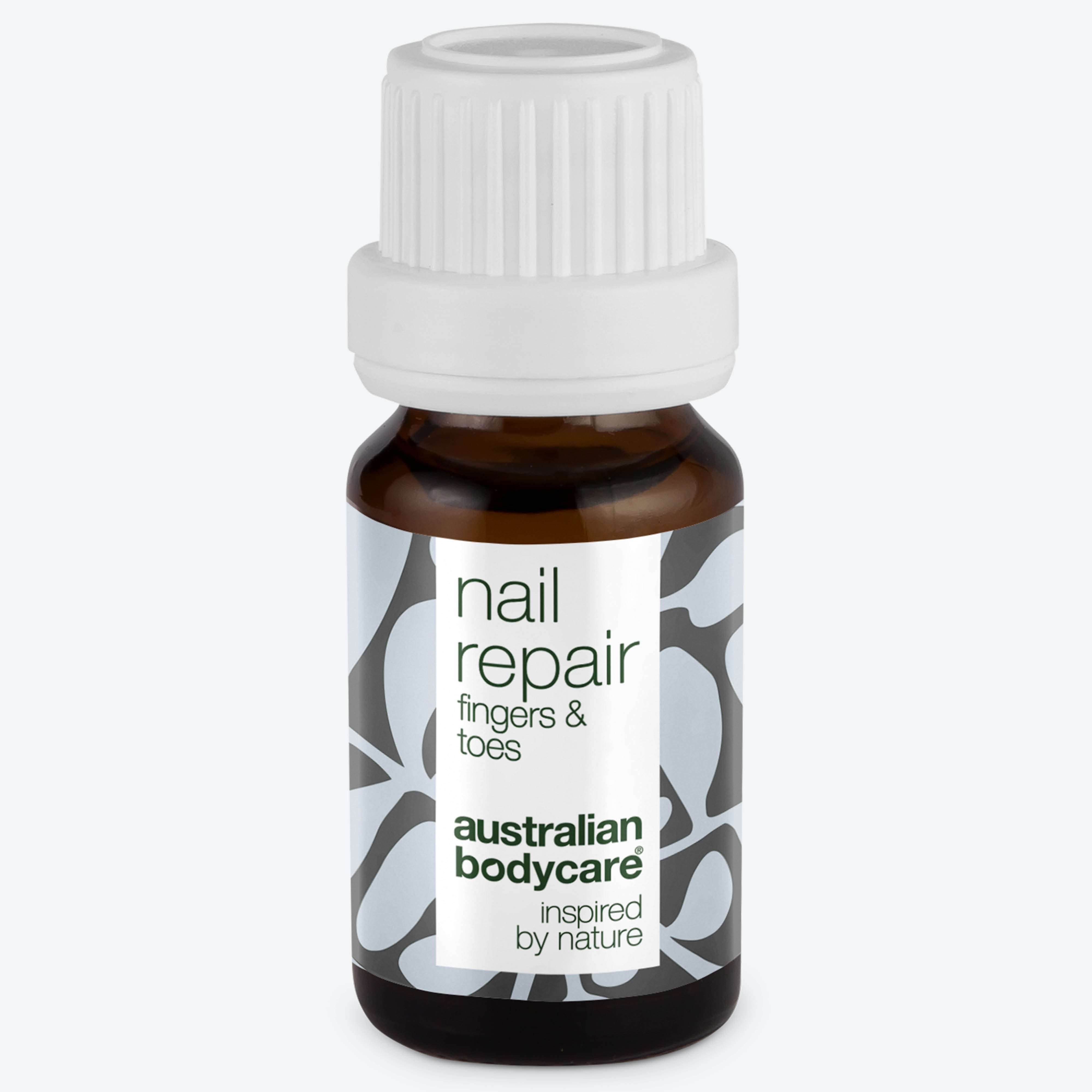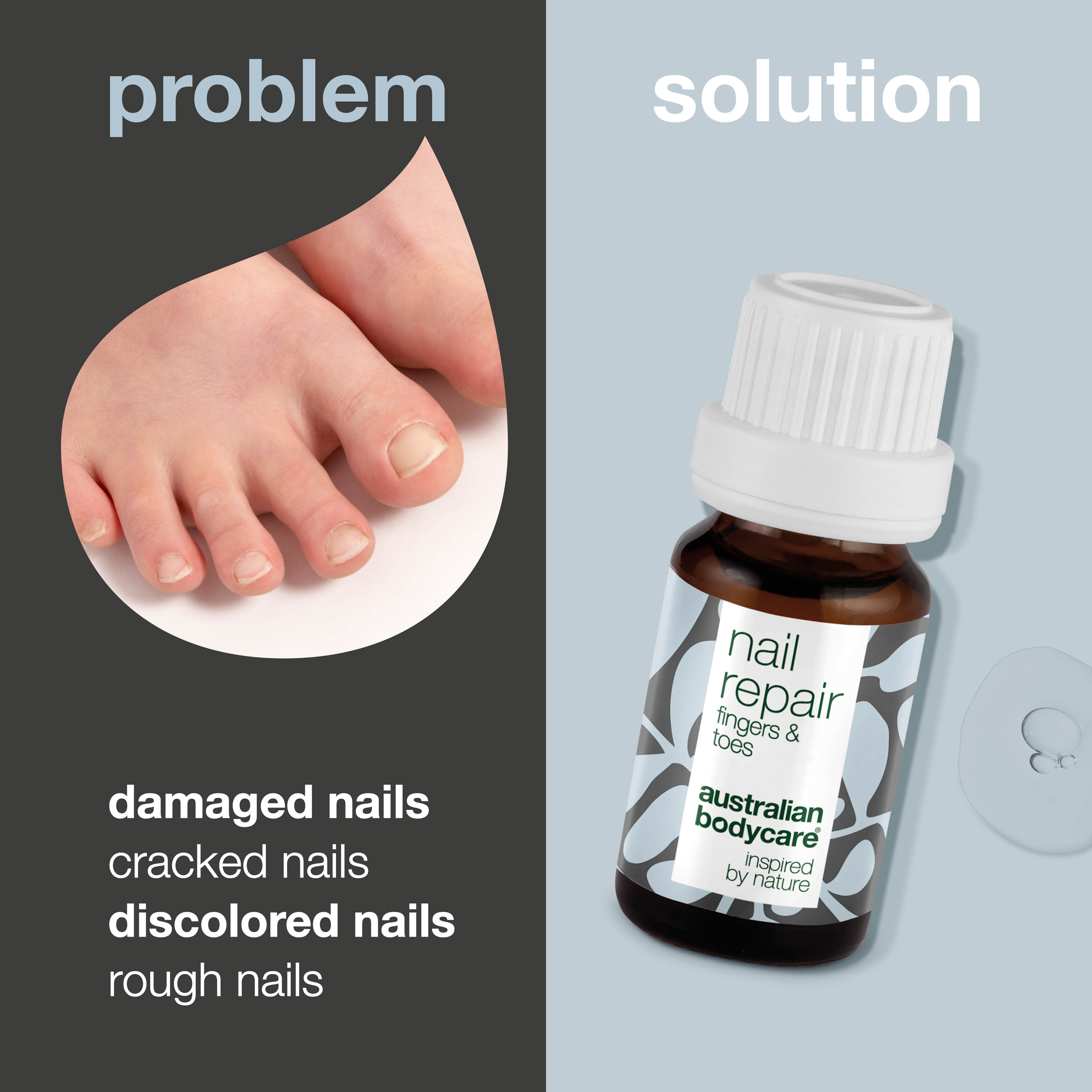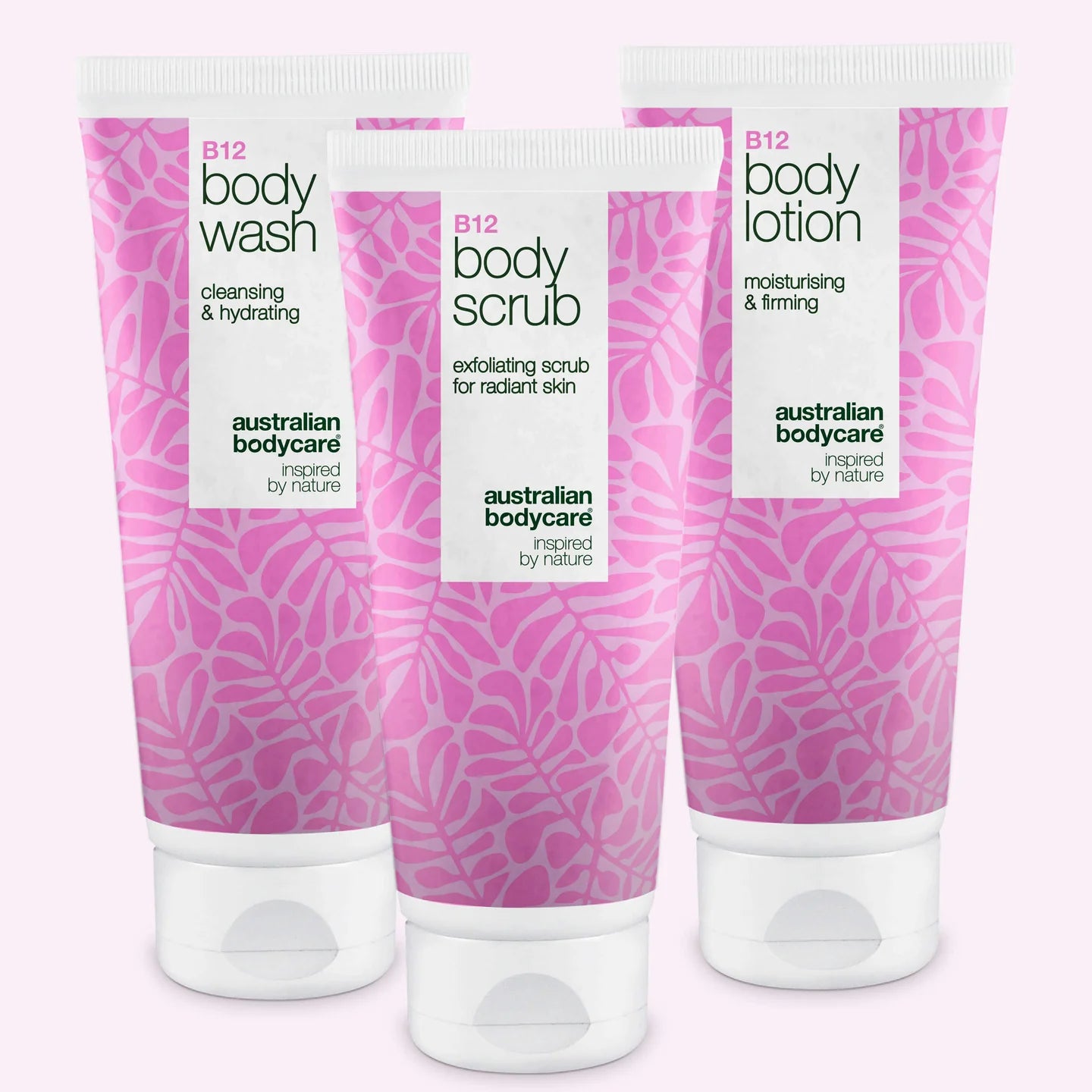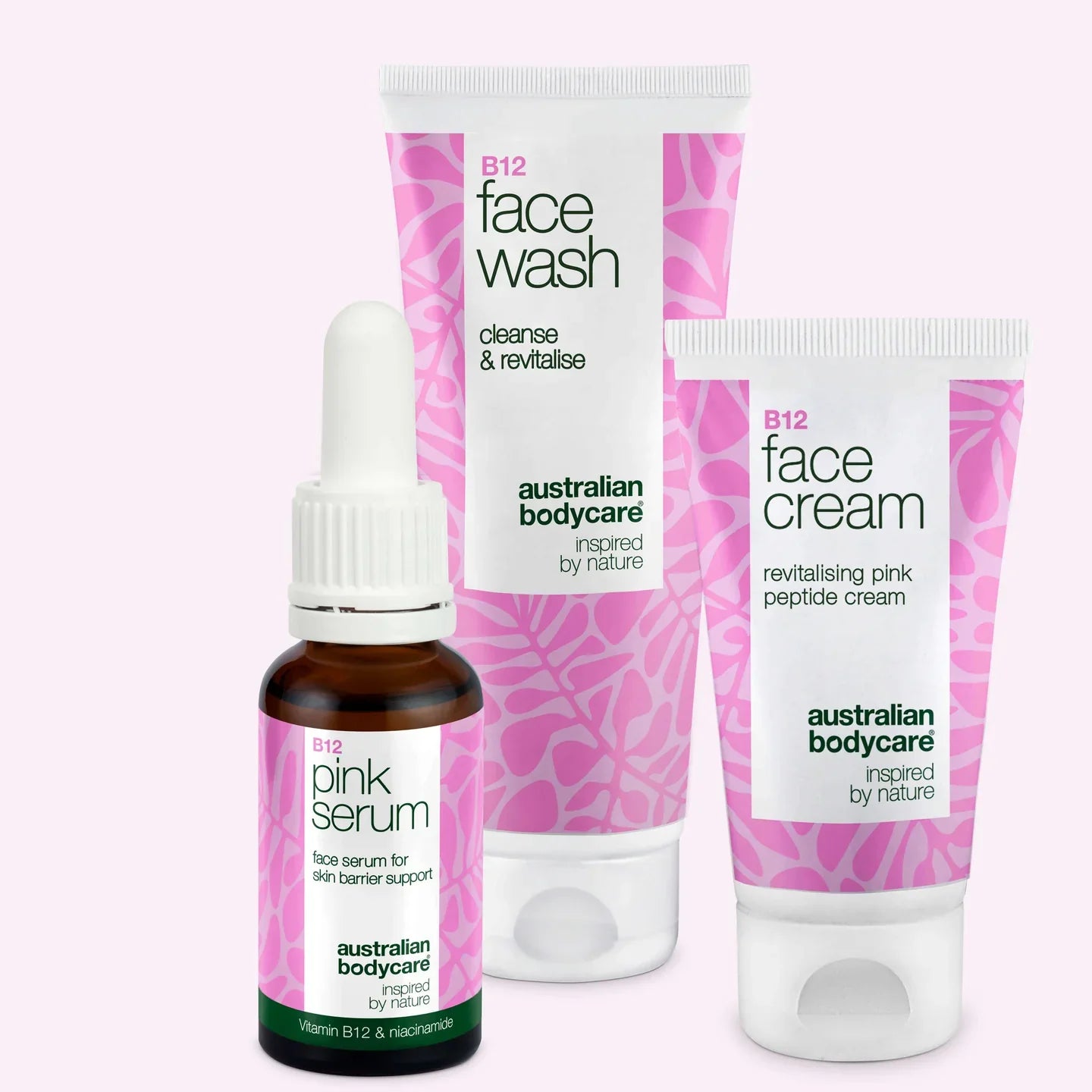What Are Fungal Infections and How Do You Get Rid of Them?
Anyone can have a fungal infection – and fungi can appear almost anywhere on the body. The causes and symptoms are different depending on the type of fungus which has infected you. It’s uncomfortable and unpleasant to have a fungal infection, but fortunately there are many good ways to treat it.
Table of contents
What Are Fungal Infections and Who Gets Them?
There are fungal spores growing everywhere on our skin across our bodies. It is completely natural. But when the fungus spores grow so much that they bother us and cause symptoms, they have developed into an infection.
Anyone can get a fungal infection – boys and girls, men and women of all ages. It’s uncomfortable and annoying, but very common. Fortunately, fungal infections can be treated quite easily. There is also much you can do to prevent new fungal infections developing in the future.
Depending on where the infection occurs and the fungi behind the infection, the causes and symptoms of a fungal infection vary. Irritation, itching and burning sensations are the most common symptoms of most fungal types.
Fungal infections are a very common disorder, and they are usually completely harmless. Some of the most common types of fungal infections are foot fungus, nail fungus, scalp fungus, genital fungus and vaginal fungus.
Click below to read more about the most common types of fungal infections and how to get rid of them.
What Are the Symptoms of a Fungal Infection?
Fungal infections can occur on most areas of the body. Symptoms vary depending on the fungus you are infected with.
Skin Fungal Infections
Fungal attacks on the skin around the body are typically seen as large or small rashes or spots. The patches may be pale in colour at the centre with a red outline. Sometimes the skin will peel, and you may even experience small blisters. Often the fungus is clearly defined against the healthy skin.
Candida fungus is a yeast fungus that is naturally found in small amounts on your skin. However, in particularly moist areas, for example the crotch, armpits and under the breasts, there may be an overgrowth of the fungus. If there’s an overgrowth leading to an infection, you will experience symptoms including redness, irritation, peeling skin and sometimes small blisters.
Pityrosporum Ovale fungus is also found naturally on your skin. An overgrowth of this fungus can cause brownish-yellow or white spots on your neck, arms and upper parts of your body. These marks are also called Pityriasis Versicolor. Moisturising creams and lotions can worsen the symptoms.
Foot Fungal Infections
Fungal infections on the feet are most commonly seen between the toes. To be precise, the infection usually starts between the fourth and fifth toe. Typical symptoms include intense itchiness and sometimes cracks and peeling skin between the toes. Foot fungus can also spread to the soles of the feet, where you may experience annoying blisters.
Hand Fungal Infections
Fungal infections on the hands often appear as red and peeling skin. Hand fungal infections occur more frequently in men.
Groin Fungal Infections
Fungal infections in the crotch, or jock itch, appear like most other fungal types with itchy, red and sometimes peeling patches on the skin; they often sting or burn. The skin folds between the thighs and crotch is very enclosed and moist, which is perfect for fungal growth.
Nail Fungal Infections
Nail fungal infections are a very common disorder. Most cases affect the toenails, but fingernails can also be attacked by the fungus. Generally, the nail gets a yellowish or whitish discolouration, becomes thicker and may even come loose. Read here to find out how nail fungal infections can be treated.
Not all nail problems are caused by nail fungus though. White or yellowing nails can be caused by other diseases. A small skin sample and a nail exam by a doctor can determine if it’s a fungal infection or something else. Always consult your doctor if you have any doubts. Your doctor can also recommend the best antifungal treatment for your nails.
Oral Thrush
Fungal infections in the mouth are caused by the yeast fungus Candida Albicans. This infection is also called oral thrush. Symptoms include white or yellow spots in the oral cavity. The spots may be slightly raised or swollen. Scratching the spots can cause small blisters that bleed easily. Oral thrush can cause a burning and uncomfortable feeling in the mouth and throat. If you want to know more about oral thrush, read this article here.
Vaginal Fungal Infections
Vaginal fungal infections are typically caused by Candida Albicans, also known as a yeast infection. When you have a vaginal fungal infection, you typically notice burning, stinging and itching sensations in the vagina, on the labia and around the genitals. Often there will be a white or yellow discharge the consistency of cottage cheese.
Men can have a fungal infection on the head or foreskin of the penis. It usually presents as a rash or blemishes that peel.
READ MORE: Itching in the vagina – how to soothe it
Video: How to stop itching down there
More information? Click her
Nappy Rash
Nappy rash may occur in babies wearing nappies. The skin becomes red and visibly irritated where the candida fungus infects the sore skin. Often there will be cracks and blisters on the skin. It itches and is very uncomfortable for the child.
Why Do You Get Fungal Infections?
The body has defence mechanisms to ensure that the natural fungal spores we all have living on us don’t infect us. When we do have a fungal infection, it’s typical because the body’s natural defence mechanism has been disturbed. It may be a disease which weakens the immune system, a course of antibiotic treatments, pregnancy, menstruation or simply because the body’s pH has been disturbed.
Stress and diet can also cause a fungal infection. When we are stressed or eat an unhealthy diet, the body is unbalanced. This may cause the fungal spores to grow more than your body can deal with.
Antibiotics kill harmful bacteria, but they also kill the good bacteria that otherwise keep the fungi levels down. Treatments with antibiotics, including penicillin can therefore lead to a fungal infection.
Skin Fungus
Skin fungal infections typically occur because of a body imbalance, weakened immune system, skin diseases, hormonal changes or some other condition. Skin fungal infections can also be contagious, so you may have been infected from another person.
Foot Fungus
Foot fungus often occurs on athletes and others who wear tight footwear and frequently sweat.
The fungus develops into an infection when you have damp, enclosed feet that aren’t given space to breathe. Tight, enclosed footwear and synthetic socks/shoes are not good for your feet because they provide a great environment for fungal growth. For more reasons why you get toenail fungus – find them here.
Vaginal Fungal Infections
Most women will experience a fungal infection in the vagina at some point in their life – or many times throughout their life. It is a very common infection and is often caused by a change in the pH of the vagina. This can happen, for example, by washing your vagina with an ordinary or perfumed soap which unbalances the naturally acidic environment of the vagina with a neutral pH.
Penicillin, certain forms of medication and a weakened immune system can also cause vaginal fungi. Hormonal changes, for example during pregnancy, can also provide better growth conditions for the fungal spores.
Mouth Fungus
Fungal infections in the mouth may be caused by an illness. Diabetic patients, for example, are more prone to having fungal infections. Generally, mouth fungal infections (oral thrush) occur in people who, for one reason or another, have a weakened immune system.
It may also occur due to a course of penicillin treatments, dental prosthesis, metabolic disorders or immune system disorders. Elderly people, new born children, chemotherapy and AIDS patients are more likely to develop oral thrush. Frequent smokers and drug addicts are also more at risk of developing an oral fungal infection.
How Can Fungal Infections Be Treated?
If you suspect that you have a fungal infection, consult your doctor so that he or she can check if it is indeed a fungus – and if so, what kind of fungus. Your doctor can quickly and easily examine the infection through a small skin, nail or single hair strand sample.
It is important that you treat your fungal infection as quickly as possible. If you go a long time with an untreated fungal infection, it can be harder and take longer to eradicate the fungal infection altogether. However, if you act quickly when you have a fungal infection, you can often treat it with drugs purchased at the local pharmacy. Certain natural remedies, like tea tree oil, are known to counteract bacteria and help keep the skin clean and healthy.
Treatment for Fungal Skin Infections
Fungal skin infections are typically treated with an ointment or cream. How often and how long you will need to apply the treatment depends on the fungus type and your infection. It may be necessary to supplement the cream with a tablet treatment.
Fungal scalp infections can often be treated with a fungicidal shampoo, perhaps combined with ointment/creams and a tablet treatment.
If you have a fungal scalp infection, it will often cause intense itchiness: read this guide here for tips to soothe the itchiness and other symptoms.
Treatment for Nail Fungal Infections
Nail fungus can be treated with a fungicidal nail polish. Often it is also necessary to supplement the nail polish with a tablet treatment. Nail fungus can be hard to get rid of, so you will need to be patient and persistent with your treatment. Read how to treat nail fungus here.
Treatment for Oral Thrush
Fungal infections in the mouth are treated with a fungicide. It may be a mouthwash type or tablets. Furthermore, the cause of the fungal infection must be found so that you can prevent the infection from coming back.
In some cases it can help to rinse the mouth with a chlorhexidine mouthwash.
Treatment for Vaginal Yeast Infections
Fungal infections in the vagina, in most cases, can be treated with lactic acid bacteria suppositories that help restore the natural acidity in the vagina. You can buy a cream that has the same effect. You can also choose to combine both suppositories and creams for your treatment. Both can be bought at the nearest pharmacy.
If suppositories and creams are ineffective, you can get a prescription for a tablet treatment from your doctor. Pregnant women must not use the tablet treatment.
If you experience problems with itching, burning, tenderness and irritation around the vagina opening, you can try using a gel with tea tree oil to soothe the symptoms. Australian Bodycare has developed Femigel, which counteracts bacteria, itching, dryness and irritation.
Video: How to stop itching down there
More information? Click her
Are Fungal Infections Contagious?
Some types of fungal infections can infect others, while other types of fungi are not contagious at all. Skin fungal infection, for example on the feet, hands and crotch, can easily infect others. However, other types of fungus, such as nappy rash on small children, cannot be transmitted to others. Nail fungal infections can be contagious, but they very rarely infect others.
Women with vaginal fungal infections can infect men. On the other hand, men with fungal infections on the head of the penis or foreskin cannot infect women.
Skin fungal infections can be transmitted from one person to another, for example in the swimming pool, bathroom, through damp towels or by skin to skin contact. Foot fungus can easily be contracted if you often walk bare foot in places others wash – like the swimming pool.
Skin fungal infections can also be transmitted from animals to humans. For example, cats, dogs, guinea pigs or calves may be infected with a fungus that’s better known as ringworm. It is therefore important that the animal is treated too – and that you avoid further contact with the animal until the fungus is completely gone.
What Can You Do to Prevent Fungus?
You can’t decide whether you will get a fungal infection or not, but there are ways you can prevent an infection.
Here’s what you can do to prevent fungal skin infections:
- Avoid contact with cats, dogs, calves and other animals that may have a fungal infection.
- Let your feet air out and dry every day – and dry the skin between your toes thoroughly after washing.
- Wear sandals when walking around the swimming pool and in shared bathrooms.
- Wear clean socks every day – and avoid wearing socks made of synthetic materials that make it harder for the skin to breathe.
- Avoid sharing towels with others – and if you have, for example, nail fungus on your toenails, you should use a separate towel for your toes and another towel for the rest of the body.
- Wear clean and dry cotton clothes in areas where your skin folds that can be infected with fungus.
- Avoid moisturising creams and lotions if you are prone to Pityriasis Versicolor, caused by the Pityrosporum Ovale fungus.
Here’s what you can do to prevent nail fungal infections:
- Keep your feet dry and get as much air as possible.
- Swap your synthetic socks with cotton or wool socks.
Here’s what you can do to prevent mouth fungal infections:
- Maintain good oral hygiene by supplementing toothbrushing by brushing your tongue and sides of the mouth with a toothbrush.
- Avoid smoking tobacco.
- Avoid sugary foods that can promote fungus in your mouth.
Here’s what you can do to prevent fungal infections in your vagina:
- Avoid wearing underwear made of synthetic materials and avoid using panty liners regularly, if you are prone to yeast infections repeatedly.
- Avoid washing around your genitals with a normal soap, as it may interfere with the natural pH balance. Instead, choose a soap formulated for use in intimate areas with the right pH.
FAQs About Fungal Infections
What do vaginal fungal infections present as?
If you have a vaginal yeast infection, you will typically experience burning, stinging and itching sensations in the vagina, labia and genital folds. Often you will also experience a white or yellow discharge, the consistency of cottage cheese.
What is Candida fungus?
There are various fungal types. The Candida Albicans fungus is a yeast that is found naturally on the body. However, when an overproduction of the Candida fungus occurs, it may cause an infection in the vagina, mouth and on areas of your skin.
Are fungal mouth infections contagious?
Babies with oral thrush can infect their mother’s nipples while breastfeeding. And in general, you can infect others if you have a fungal infection in your mouth – and you can catch the infection from others.
Why do you get fungal mouth infections?
Oral thrush is caused by several underlying problems; most often it affects people with a weakened immune system due to illness. It can also be caused by smoking, dentures, tongue piercings, medications and penicillin treatments. New born babies are a high-risk group.
Why do you get fungal infections on your tongue?
Fungal infections on the tongue affect the same people as oral thrush: people with a weakened immune system due to illness. Smoking, use of dental prosthesis, tongue piercings, medications and penicillin treatments are all frequent causes of tongue fungal infections. In addition, new born babies can have tongue fungal infections, also called thrush.
How is oral thrush treated?
Fungal infections on the tongue and in the mouth are treated with a fungicide. It may be a course of tablets or a mouthwash. It is important to maintain good oral hygiene.
Where does fungus come from?
Fungal infections in the vagina are caused by Candida yeast. It is very common and is caused by a change in the pH of the vagina. This can happen, for example, by washing with perfumed soaps, taking penicillin treatments and certain medicines or hormonal changes.
Are vaginal yeast infections dangerous during pregnancy?
Fungal infections in the vagina are not harmful to the foetus and do not affect pregnancy. The infection is treated with suppositories and creams. Tablet treatments are not recommended for pregnant women.
What is throat fungus?
Excessive mucus in the oesophagus can be caused by the Candida fungus. It is treated with a fungicide as a drink or a tablet. Untreated fungal infections in the mouth can spread to the oesophagus, so it is important that infections are always treated.
What cures fungal infections in the mouth?
Oral thrush is treated with a fungicide that can be taken as a drink or tablets. In addition, it is important to maintain good oral hygiene. If you smoke, quitting can really help prevent fungal infections now and in the future.
How do you get scalp fungal infections?
Fungal infections on the scalp are more common in children. They will typically catch the infection from pets and livestock, even if the animal doesn’t show any signs of infection. Humans have stronger reactions to fungal infections compared to animals. It is important to treat the fungus on both the person and the animal, otherwise they may infect each other again.
READ MORE: Sore scalp – How to Get Rid of sore itchy scalp
How do you get skin fungal infections?
Skin fungal infections can occur in many different places on the body. They are often caused by an imbalance in the body, for example stress, unhealthy diet, weakened immune system or hormonal changes. It may also be caught from other people.
How do you get rid of yeast infections?
Fungal infections in the vagina can be treated with suppositories and/or creams containing lactic acid bacteria that ensure the correct acidity levels. If these are ineffective, you can get a prescription tablet from your doctor.
Why does my baby have a fungal infection on their bottom?
Fungal infections on the bottom, or nappy rash, are caused by trapped moisture and fungi spores. The warm and humid environment provides good growth conditions for fungi to develop into an infection.
Can you get a fungal infection in the rectum?
You can have fungal infections in the rectum. Often it occurs because you have used a medicine that contains the adrenal gland hormone, to treat itching for example.
Can vaginal yeast infections infect others?
Fungal infections in the vagina can sometimes be transmitted through sexual intercourse, but this is very rare.
Can fungal infections trigger menstruation?
An unexplained menstrual period is not caused by a vaginal yeast infection – it may be due to something else.
What do fungal mouth infections feel like?
Fungal infections in the mouth can be quite painful and should always be treated. Symptoms include white or yellow spots in the oral cavity. Scratching these spots may cause small blisters that bleed easily. Oral thrush can also give a burning and uncomfortable feeling in the mouth and throat.
Are fungi the same as bacteria?
We all have fungi and bacteria in and on the body. However, fungi and bacteria are not the same.
Are fungal infections a sexually transmitted disease?
Fungal infections are not a sexually transmitted disease and are not contagious like a sexually transmitted disease. If you notice an abnormal symptom, always consult a doctor to determine if it is a disease or fungal infection. Both must be treated, but in different ways.
Is fungus in the groin dangerous?
It is not dangerous to have a fungal infection in the groin. Nevertheless, fungus should always be treated as it’s uncomfortable and irritating – certain types of fungus can also be transmitted to others.
Are warts a fungus?
Warts are not the same as fungus. In some cases, fungal infections may cause small blisters on the skin, but these should not be confused with warts.
How fast does fungus disappear?
Fungal infections rarely disappear by themselves without treatment, so it’s a matter of being treated for fungus quickly, so you can get rid of it and prevent infecting others.
How long does the fungi cause itching for?
Most types of fungal infections cause itching, which typically does not disappear before the fungus is gone. It is important to get treatment as soon as possible.
Why do you get Candida fungal infections?
Candida fungus is found on the skin of all humans, but when an overproduction of the fungus occurs, it begins to infect your skin. Often it occurs in connection with an imbalance in the body, for example because of a weakened immune system, stress, unhealthy diet or hormonal changes. It may also be caught from other people.
Can Adrenocorticotropic hormone give you a fungal infection?
Adrenocorticotropic Hormone (ACTH) can cause a fungal infection, so you should only use Adrenocorticotropic hormones when strictly necessary for as short a time as possible.
Can condoms cause fungal infections?
Condoms cannot give you a fungal infection, but they can cause irritation and itching that can be confused with the symptoms of fungal infections.
Can you become infertile because of a yeast infection in the vagina?
Fungal infections are uncomfortable and annoying and should always be treated, but you cannot become infertile because of a fungal infection in the vagina.
Do fungal infections disappear by themselves?
Fungal infections will rarely disappear by themselves, so you should get treatment as soon as you discover the fungus to relieve the symptoms quickly.
Can you use tampons when you have a yeast infection?
You can use tampons when you have a fungal infection in the vagina, but you may prefer to use pads instead for comfort.
Can you have sexual intercourse when you have a fungal infection?
You can have intercourse when you have a fungal infection, but be sure to use a condom so that you do not infect your partner.
Can you go swimming when you have a fungal infection?
You must wash yourself when you have a fungal infection. However, if you have foot fungal infections or other fungal infections that can infect others, it’s a good idea to wear sandals when you walk in public areas (like swimming pool changing rooms and public wash rooms) and never share your towel.

